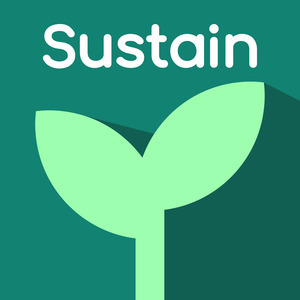Episode 176
Maintainer Month with Russell Keith-Magee & Uriel Ofir
May 16th, 2023
34 mins 24 secs
About this Episode
Guests
Russell Keith-Magee | Uriel Ofir
Panelist
Richard Littauer
Show Notes
Hello and welcome to Sustain! The podcast where we talk about sustaining open source for the long haul. This is a special podcast and one of several in this series for GitHub’s Maintainer Month. We’re interviewing maintainers to ask them about their experience of open source and their experience of living as maintainers. Our first guest is Dr. Russell Keith-Magee, who’s the Founder of the BeeWare Project and Software Engineer at Anaconda working on BeeWare in the OSS team. Russell talks about starting the project, the challenges of transitioning from an author to a maintainer, and the role of Anaconda in the Python ecosystem. Then we’ll have a conversation with our next guest, Uriel Ofir, who’s the Founder and Manager of Ma’akaf, an open source Israel community. Uriel tells us all about Ma’akaf, the importance of members being serious and proactive in contributing to the community, and how they encourage participants to contribute and improve their skills through an “open source party.” Hit download to hear much more!
Russell:
[00:01:40] Russell explains his role at Anaconda and being the Founder of the BeeWare Project.
[00:03:43] The role of Anaconda in the Python ecosystem and the company’s open source offerings is discussed.
[00:04:15] Russell discusses the process of starting the BeeWare project.
[00:08:03] We hear about the funding problem in open source and how development is something that needs to be looked at.
[00:10:15] He tells us the challenges of transitioning from an author to maintainer.
[00:11:51] What’s hard for Russell as a maintainer? He mentions struggling when you don’t see progress and the difficulties of finding maintainers with the necessary skillset.
[00:14:35] There’s been a lot of effort trying to document the onboarding process and making it smoother for new contributors.
[00:15:21] Russell’s excited about the prospect of iOS and Android becoming officially supported platforms in C Python and the progress they’ve made after nine years of work.
[00:16:28] Find out where you can follow Russell and read about his work on the web.
Uriel:
[00:18:23] Our next guest, Uriel Ofir, joins us and he tells us about Ma’akaf.
[00:22:28] He explains the community currently has around 350 members and four active projects.
[00:26:09] He started the community even after he got a job and manages it by delegating tasks and empowering members to take responsibility for projects, and he emphasizes the importance of members being serious and proactive in contributing to the company.
[00:29:48] Uriel shares how they encourage participants who may be hesitant to contribute to their open source community by hosting an “open source party” where everyone is welcome to introduce themselves and ask for help or advice.
[00:31:43] Uriel tells us where people can join this group and follow him on the web.
Quotes
Russell:
[00:02:08] “The Python ecosystem is only successful because of the open source component of it.”
[00:06:51] “I made some challenge coins that we would give out to anyone who made a contribution.”
[00:08:22] “Open source has a funding problem. There are big problems that don’t get solved unless you have someone working on them full-time.”
[00:11:22] “Having to create the project was an inconvenience before I can get to the point of having other work on it with me.”
[00:11:29] “Open source really is a community. The whole thing is built around people working together for a greater good.”
[00:15:05] “The more you can remove every possible obstacle to someone getting that first contribution, the more likely they are to contribute, not necessarily more likely to hang around long term.”
Uriel:
[00:28:33] “The most important thing about open source is to be serious.”
[00:32:07] “I really want people to contact me around the world because this idea is scalable, and I would be happy to help you with that.”
Links
- SustainOSS
- SustainOSS Twitter
- SustainOSS Discourse
- podcast@sustainoss.org
- SustainOSS Mastodon
- Richard Littauer Twitter
- Richard Littauer Mastodon
- Russell Keith-Magee Mastodon
- BeeWare
- BeeWare GitHub
- Sustain Podcast-Episode 64: Travis Oliphant and Russell Pekrul on NumPy, Anaconda, and giving back with FairOSS
- Uriel Ofir Twitter
- Uriel Ofir GitHub
- Uriel Ofir LinkedIn
- International OS Party
Credits
- Produced by Richard Littauer
- Edited by Paul M. Bahr at Peachtree Sound
- Show notes by DeAnn Bahr Peachtree Sound
